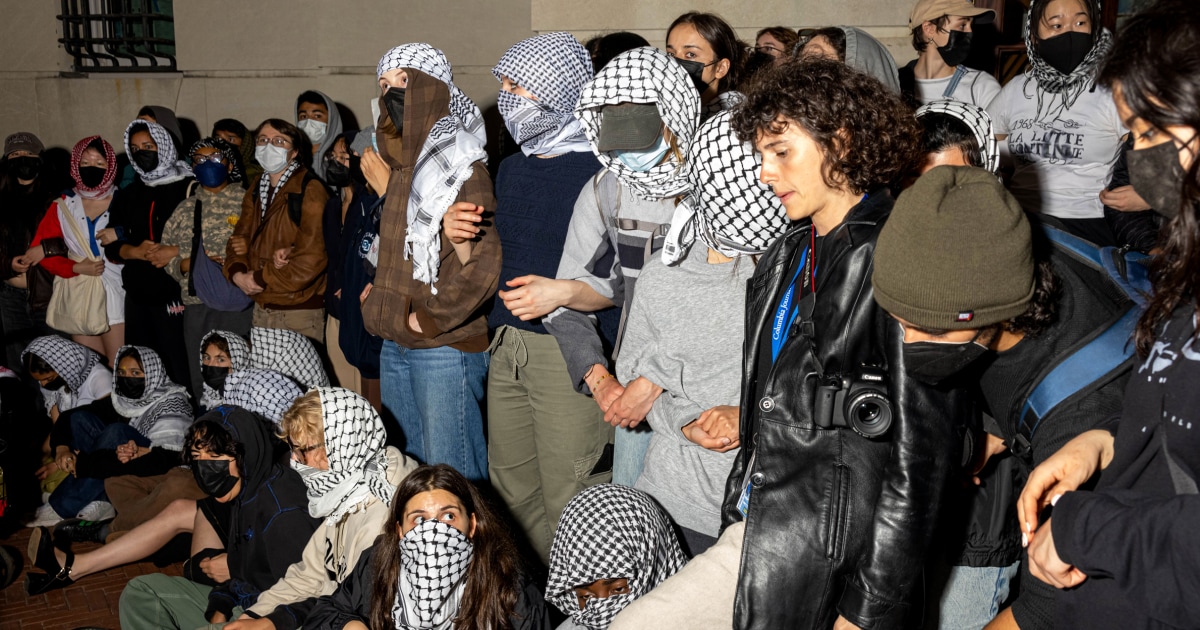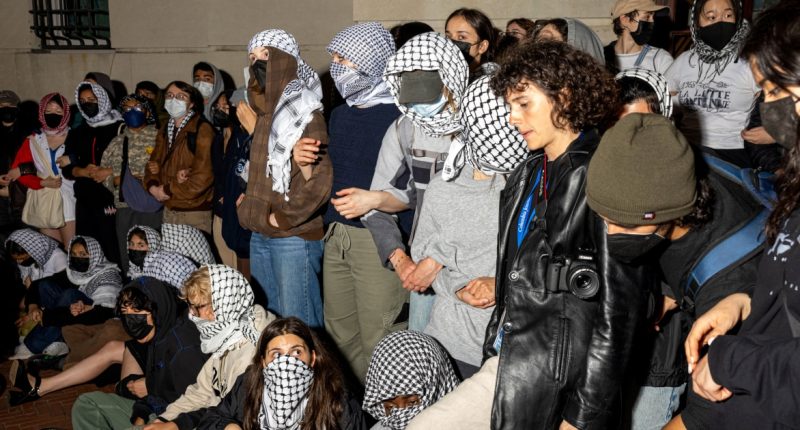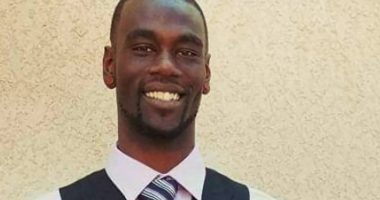
The U.S. Education Department is opening a civil rights investigation into Columbia University after Palestinian students and their allies filed a complaint last month alleging discrimination in violation of federal law.
Palestine Legal, a Chicago-based advocacy group representing four students and the Columbia Students for Justice in Palestine, received notice Thursday from the agency’s Office for Civil Rights that an investigation would commence based on whether the university is adhering to Title VI regulations that prohibit discrimination based on race, color or national origin and retaliated against students based on those factors.
The students initially complained about being targeted by school administrators with “extreme anti-Palestinian, anti-Arab, and Islamophobic harassment” after speaking out and protesting against Israel’s war in Gaza that began in October. The students say they have received death threats, subjected to doxxing or harassed for wearing hijabs or keffiyehs, while “high-ranking administrators,” including university President Minouche Shafik, have failed to respond promptly and end intimidation on campus.
“Instead, Columbia has reinforced the hostile anti-Palestinian environment, including by suspending Students for Justice in Palestine — a student organization that advocates for Palestinian human rights — for engaging in speech activity supporting Palestinian rights, and by repeatedly engaging in different treatment of Palestinian students and their allies,” Palestine Legal wrote in its complaint to Education Secretary Miguel Cardona.
The Education Department says schools that intentionally violate Title VI can be forced to create certain policy requirements as a remedy or face penalties that affect federal funding. The department may also help mediate an agreement between parties.
The agency lists two other investigations into Columbia University on its website, including one opened last week, although it’s unclear if they are related to the weeks of campus unrest. The Education Department said in response that it does not comment on pending investigations, while Columbia also declined a request for comment.
Palestine Legal’s complaint was made before the flurry of events on the schools’ upper Manhattan campus, where students were given a Monday afternoon deadline to vacate a sprawling tent encampment or face suspension. The following evening, the school’s Hamilton Hall became the scene of a tense showdown when Shafik called the New York City Police Department to remove students who had occupied the administration building 20 hours earlier. Mass arrests were conducted at Hamilton Hall and outside Columbia in street demonstrations.
Shafik said in a statement Wednesday that those students “have many supporters in our community and have a right to express their views and engage in peaceful protest,” but their ongoing demonstrations were creating a “disruptive environment for everyone and raising safety risks to an intolerable level.”
Separately, a class action lawsuit was filed this week in the Southern District of New York by Jewish students accusing the university of violating safety protocols by allowing “extremist protesters” to intimidate them and “push them off campus” because of safety concerns.
University officials did not comment on the suit, but Shafik also said this week that the school is “committed to making Columbia safe for everyone.”
The Jewish students’ lawsuit and the Palestinian students’ complaint underscore the fraught relations on U.S. college campuses, long upheld as places for debate and demonstrating, as the deadly conflict between Israel and Hamas marks almost seven months.
Layla Saliba, a student in Columbia’s School of General Studies who is among those named in Palestine Legal’s complaint, said the opening of an investigation by the Education Department shows the urgency of the situation.
“It should not be controversial to be against your relatives being bombed,” Saliba said. “Yet Columbia has created an environment where just expressing your view as a Palestinian, it feels so unwelcoming.”
Maryam Alwan, a comparative literature and society major who is another student named in the complaint against Columbia, said she was suspended following her arrest last month when Columbia called in police to the campus about the encampments. More than 100 people were arrested and issued summonses for trespassing.
“The complaint is not just made on my behalf,” Alwan said, “but it’s meant to create institutional changes across the board because the level of unaddressed discrimination that has been caused directly by the school that has actually endangered students’ lives has been unprecedented.”
Source: | This article originally belongs to Nbcnews.com










